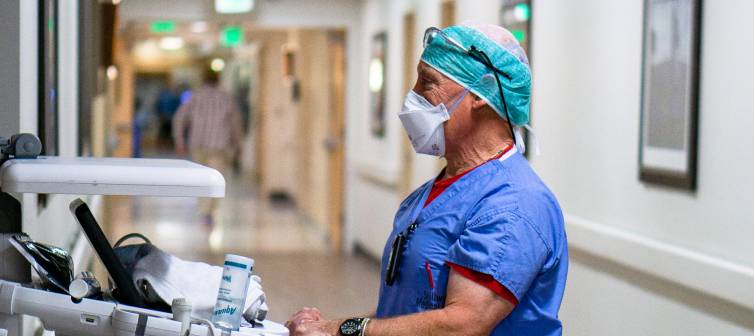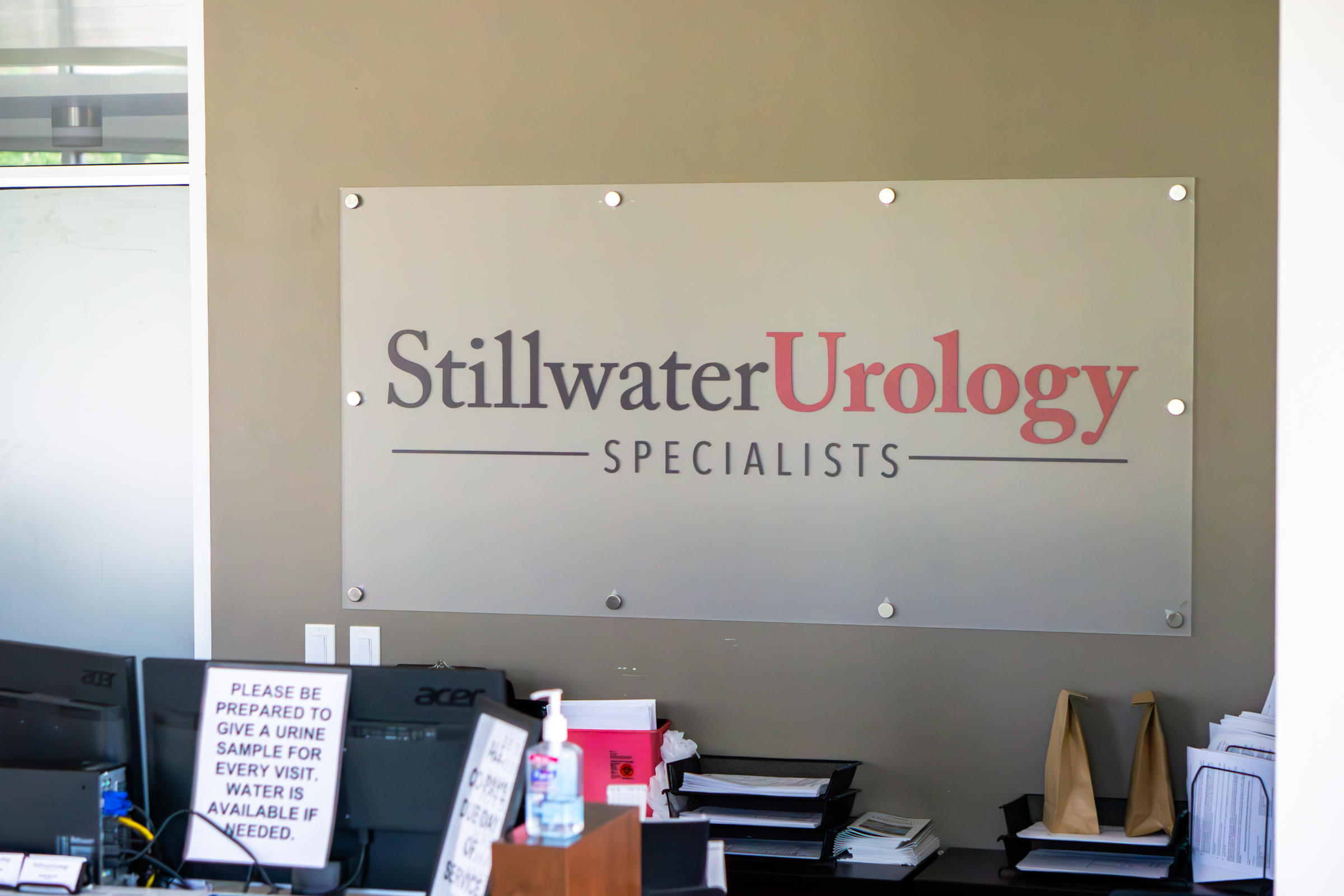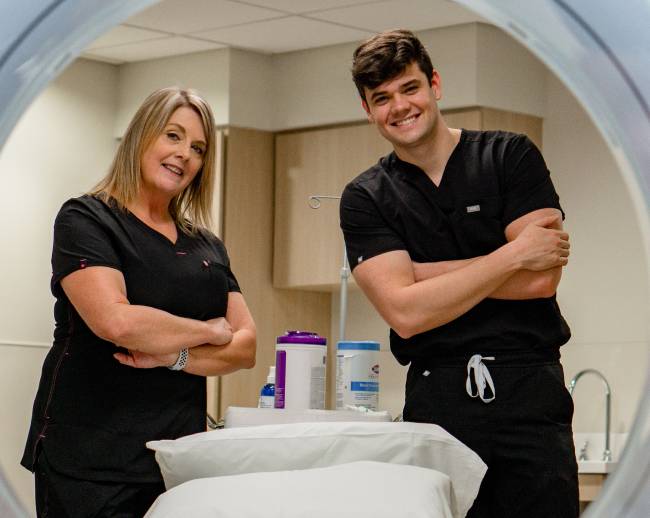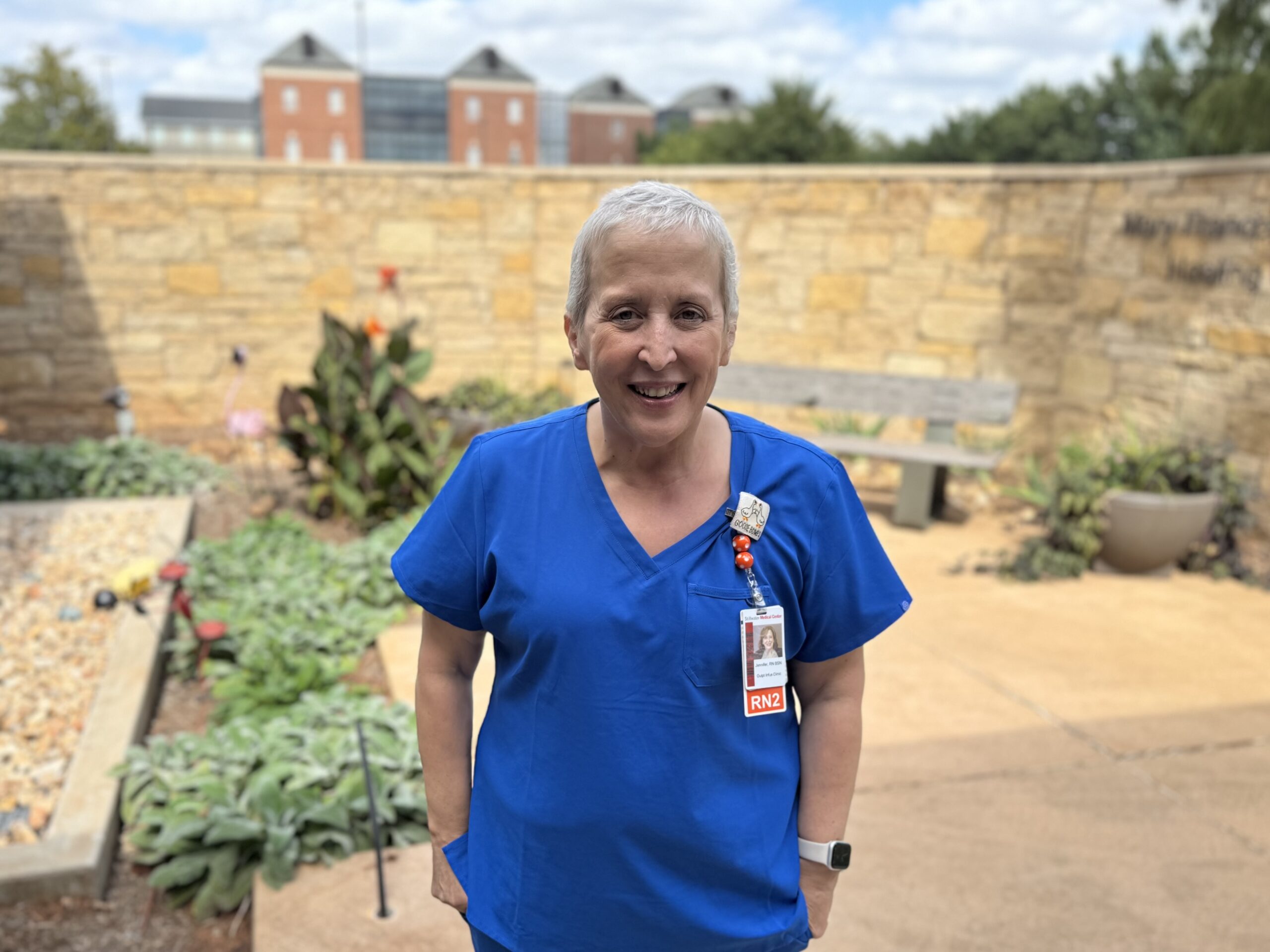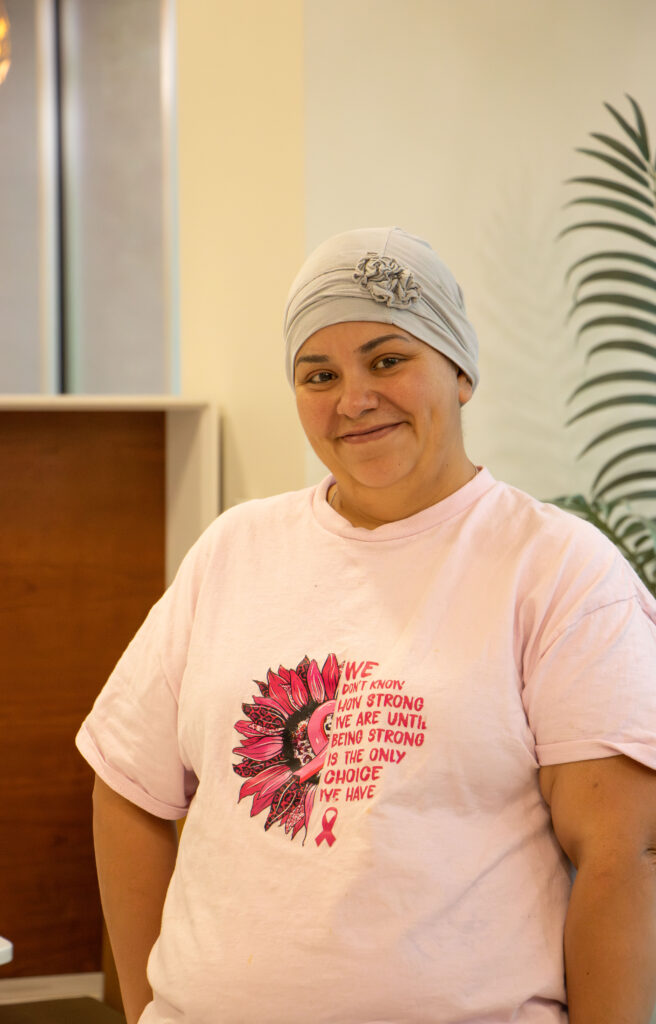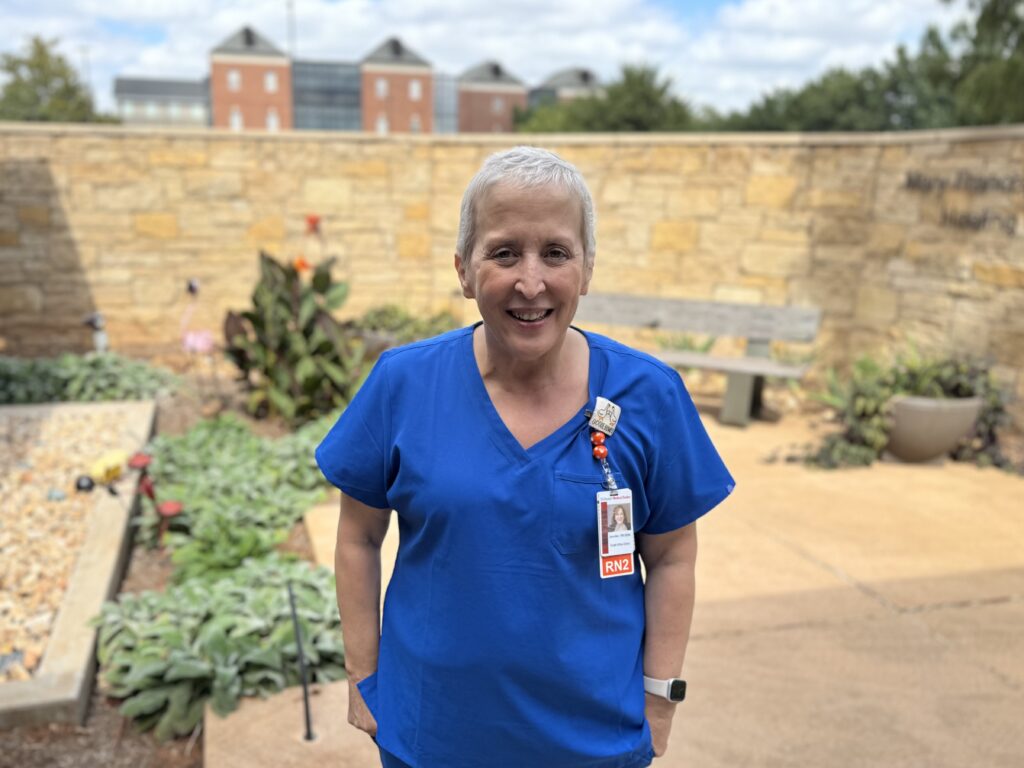
Jennifer Eberle, an oncology nurse at Stillwater Cancer Center, credits cancer with teaching her about the courage inside each of us. Born with a rare genetic syndrome, she’s now a two-time cancer survivor who finished breast cancer treatment this week.
“One time I had a patient pass on something to me. She said, ‘When you’re a survivor, you have to help others survive.’ That’s stuck with me,” Eberle said.
Eberle overcame thyroid cancer at age five and lived a very normal life until five years ago when she went in to have a skin tag removed. She learned from her dermatologist, Dr. Thomas Hall, that she had Cowden syndrome — a genetic disorder that increases the risk of developing certain cancers including breast, thyroid, colon and uterine cancers. From that point forward, she began frequent monitoring and even had a preventative hysterectomy a few months later. In January, one of those regular screenings showed signs of cancer.
The weeks that followed drug on for her as she underwent multiple surgeries and waited for further results. As an oncology nurse, she has a front-row seat to cancer’s effects, and she was familiar with the treatment regimen that was coming. After opting for a bilateral mastectomy, she learned the cancer had spread to her lymph nodes and she feared the worst.
“I thought, if it’s in the lymph nodes, it’s everywhere. I had worked myself up into a tizzy when it came time for my PET scan,” Eberle said. “All I could think of in that dark, black tube was that line from a Casting Crowns song, ‘My help comes from the Lord, the maker of heaven and earth.’ Your faith gets a lot stronger in times of crisis.”
The scan revealed no further spreading, which was a relief to her. Eberle was able to begin treatment, which included chemotherapy and radiation. Her final radiation took place on Oct. 15, her birthday. As she reflects back on the last year, she’s quick to credit her faith and her support system for helping her find strength in uncertain moments.
“I really didn’t want for anything. Between my family and friends, a great group of friends at work and a great church family, I had the support I needed,” Eberle said. “My husband, Tony, is a godsend. He’s been here through it all.”
According to the American Cancer Society, about one in eight women in the United States will be affected by breast cancer over the course of their lifetime.
While the disease can occur at any age, risk increases significantly after age 40. Early detection through regular mammograms and increased awareness of personal risk factors—such as family history, genetic mutations like Cowden, and lifestyle choices—has helped improve survival rates. Today, thanks to advances in screening and treatment, the five-year survival rate for localized breast cancer is about 99%, making early detection a critical part of saving lives.
“No one’s immune to cancer,” Eberle said. “Stillwater is so lucky to have the cancer center here. Not only because of the level of care, but also because of the access to world-leading technology and specialists. Most communities don’t have that. I’m one of the lucky ones.”
Eberle’s grateful she was able to continue working through treatment. In eight months, she missed only one day of work. She describes the journey as humbling. Losing her hair was particularly painful because she no longer looked like herself. At that point, it was obvious to others – especially her patients – that she was undergoing treatment herself.
“A lot of why I enjoy working at the cancer center is because there’s a community that forms back there. It’s nice as a nurse to see it, but then I got to be part of their community during treatment and that was great,” Eberle said.
Eberle said she hopes sharing her story encourages others to prioritize their health. Preventative screening helped her identify cancer early, and she’s hopeful other women will find the courage to schedule their mammogram. Stillwater Medical has an online scheduling tool available at www.stwmedical.com/courageous.
“When I rang the bell, I didn’t cry,” Eberle said. “Cancer took enough tears from us. We’re moving on to the next chapter.”
